Wow, so what do you really believe? ...Statement of Faith
Re: Wow, so what do you really believe? ...Statement of Fai
I really have lived in books. Books are friends. They are some of the friends that make you who you are.
stanley hauerwas
stanley hauerwas
- DaveB
- Posts: 3159
- Joined: Wed May 02, 2012 6:07 pm
Re: Wow, so what do you really believe? ...Statement of Fai
Holy-Fool-P-Zombie wrote:Geoffrey wrote:Holy-Fool-P-Zombie wrote:The only way I see to save "inerrancy" with Genesis, is to look at vast parts, either allegorically or symbolically. Otherwise, we need to run with infallibility.
I think that Genesis, understood as inerrant and interpreted literally, is 100% compatible with an old earth, a local flood, and biological evolution of all species except for mankind.
Can you elaborate a bit and give some simple examples
Or point me to some links, that looks at an "inerrant " Genesis, along with an "old earth, a local flood, and biological evolution of all species except for mankind." I'm always eager to learn.
Sure. I'd be glad to.
1. Genesis 1 makes it clear that the days are not 24 hours long:
http://www.godandscience.org/youngearth/genesis1.html
http://www.godandscience.org/apologetics/day-age.html
http://www.godandscience.org/youngearth ... fense.html
http://www.godandscience.org/youngearth/longdays.html
Day 6 is especially clear. If Adam did all of that in 24 hours, then we'd have to imagine him moving like someone in a film ran way too fast, and we'd have to imagine his voice sounding like that of a record of Alvin and the Chipmunks played way too fast. It's grotesque.
2. Genesis 6-9 makes it clear that the Flood must have been local:
http://www.godandscience.org/apologetic ... flood.html
http://www.godandscience.org/youngearth/psalm104.html
3. The scriptures nowhere exclude biological evolution. Glenn Morton has a couple of books that demonstrate this at length. In short, read Genesis 1. Nowhere in there does it describe how God created living things. Nothing in there gives us a hint as to what it would have looked like if we were eyewitnesses to the creation of (for example) Tyrannosaurus rex. Perhaps a Tyrannosaurus popped into existence out of thin air. Perhaps a stone transformed into a Tyrannosaurus. Perhaps an Allosaurus laid an egg and a Tyrannosaurus hatched. Etc. Jesus said that God sends His rain on the just and on the unjust. I've never seen anyone use that passage to try to disprove the evaporation-condensation cycle. That cycle simply gives a physical explanation of how God sends His rain. Similarly, theories of biological evolution simply give physical explanations of how God created living things.
4. The scriptures in Genesis 2:7, 21-22 do tell us how God created mankind: "And the Lord God formed man of the dust of the ground, and breathed into his nostrils the breath of life; and man became a living being...And the Lord God caused a deep sleep to fall on Adam, and he slept; and He took one of his ribs, and closed up the flesh in its place. Then the rib which the Lord God had taken from man He made into a woman, and He brought her to the man." Understood literally, those three verses exclude the possibility of mankind evolving from another living thing. (Of course, these verses can be understood in a figurative sense if one must accommodate human evolution.)
I believe that Adam and Eve were just as historical as the Apostle Paul, and that they were the first two human beings to exist. I believe that the Flood destroyed all of humanity except for the eight people on board the ark:
1. Noah
2. Mrs. Noah
3. Primus McNoah
4. Secundus McNoah
5. Tertius McNoah
6. Mrs. Primus McNoah
7. Mrs. Secundus McNoah
8. Mrs. Tertius McNoah
I believe that the universe and the earth and life and death are billions of years old. Adam did not introduce sin into God's creation. The Devil did. I suspect that the Devil's first sin coincided with the Big Bang. Instead of the universe being perfect, the Devil blew it up! Therefore the creation is only "good" instead of "perfect".
None of my interpretations are modern. The liturgy of the Orthodox Church never describes how God created non-life or non-human life, nor does it say how old creation is, nor does it say that the Flood inundated the entire planet, nor does it say that Adam was the first sinner. (Keep in mind that the liturgical texts were completed in all of their glory before Martin Luther was born.)
The liturgy does teach us that the Devil was the first sinner, and that Adam and Eve were individuals directly created by God, and that the Flood destroyed all of humanity except for the eight aboard the ark.
My interpretations, far from being infected with modernism, are older than Protestantism.
Last edited by Geoffrey on Tue Aug 02, 2016 9:31 pm, edited 1 time in total.
Bill Maher asked, "So how do you convince people of the truth?"
Father Reginald Foster answered, "You don't. Forget it. You just have to... You just have to live and die with their stupid ideas. I'm sorry. What are you going to do?"
Father Reginald Foster answered, "You don't. Forget it. You just have to... You just have to live and die with their stupid ideas. I'm sorry. What are you going to do?"
- Geoffrey
- Posts: 908
- Joined: Wed Sep 17, 2008 3:15 pm
Re: Wow, so what do you really believe? ...Statement of Fai

[email protected] wrote:My proposed statement of faith does not engage in the creation evolution debate because it is intentionally brief. However, I myself hold to a non-evolutionary creationist view. Two quick thoughts...
1) Here is an interesting interview with Richard Dawkins. For those that truly understand God's design in the information stored in DNA this interview exposes a fatal flaw in the science of evolution, http://creation.com/was-dawkins-stumped ... uted-again. The interview is hotly debated because Dawkins is knocked off his feet with the simple question.
2) For myself the deal breaker for evolution is not scientific as much as it is historical / theological. Romans 5:12 makes it plain that sin first entered the world, followed by death. This is a critical observation to conclude that death was not a beginning or end game for our God of life, but a temporal fact in the middle. Universalists ought to especially appreciate this fact. Thus, millions of years of death and evolution leading to the first man is not possible.

Here are some rebuttals to point 2:
I like the last answer the best. But more then one used the term "spiritual death", rather than "physical death" - in their rebuttal answers.

Anglo-Orthodox / Anglo-Catholic; Holy Fool Theologian; Satirist; Pragmatist; Homeopath; Inclusivist / Postmortem Opportunist / Conditionalist;
Contemplation (i.e. Mindfulness, Walking the Red Road, Yoga); Ayurveda; Chinese Medicine; Prosperity (AKA Joel Osteen) / Full Gospel
Contemplation (i.e. Mindfulness, Walking the Red Road, Yoga); Ayurveda; Chinese Medicine; Prosperity (AKA Joel Osteen) / Full Gospel
-

Holy-Fool-P-Zombie - Posts: 2037
- Joined: Mon Oct 20, 2014 6:30 pm
- Location: Near Chicago or hanging out with Holy Fools, P-Zombies, Guardian Angels and Devil's Advocates
Re: Wow, so what do you really believe? ...Statement of Fai
Genesis 1 makes it clear that the days are not 24 hours long.
Hmmmm... Not too clear, in my opinion. I've never heard of the word "day" used in a figurative sense in which it had an evening and a morning.
For example, we might speak of the "day" in which Shakespeare lived. But have you ever heard of the evening in which Shakespeare lived? Or the morning?
Paidion
Man judges a person by his past deeds, and administers penalties for his wrongdoing. God judges a person by his present character, and disciplines him that he may become righteous.
Avatar shows me at 76 years. I am now in my 80th year of life.
Man judges a person by his past deeds, and administers penalties for his wrongdoing. God judges a person by his present character, and disciplines him that he may become righteous.
Avatar shows me at 76 years. I am now in my 80th year of life.
-

Paidion - Posts: 3296
- Joined: Sun Jan 11, 2009 8:38 pm
- Location: The Back Woods of North-Western Ontario
Re: Wow, so what do you really believe? ...Statement of Fai
Paidion wrote:I've never heard of the word "day" used in a figurative sense in which it had an evening and a morning.
Have you considered the biblical expression “the DAY of the Lord” where this speaks to a period of divine judgment… this would constitute a “figurative sense” or usage of that word, and thus fully inclusive of numerous days containing “evening and a morning”.
“...the power and mercy of God’s grace is NOT limited to man’s ability to comprehend it...”
-

davo - Posts: 1223
- Joined: Tue Sep 25, 2012 9:10 am
- Location: Brisbane Australia
Re: Wow, so what do you really believe? ...Statement of Fai
davo wrote:Paidion wrote:I've never heard of the word "day" used in a figurative sense in which it had an evening and a morning.
Have you considered the biblical expression “the DAY of the Lord” where this speaks to a period of divine judgment… this would constitute a “figurative sense” or usage of that word, and thus fully inclusive of numerous days containing “evening and a morning”.
Davo is right on this one. The Protestant site Got Questions, is in agreement at:
With the possible exception, of the "eternal damnation" part
Notice that the "scholars" have different opinions. Which - more often than not - is the usual case.
Most people associate the day of the Lord with a period of time or a special day that will occur when God’s will and purpose for His world and for mankind will be fulfilled. Some scholars believe that the day of the Lord will be a longer period of time than a single day—a period of time when Christ will reign throughout the world before He cleanses heaven and earth in preparation for the eternal state of all mankind. Other scholars believe the day of the Lord will be an instantaneous event when Christ returns to earth to redeem His faithful believers and send unbelievers to eternal damnation.

Anglo-Orthodox / Anglo-Catholic; Holy Fool Theologian; Satirist; Pragmatist; Homeopath; Inclusivist / Postmortem Opportunist / Conditionalist;
Contemplation (i.e. Mindfulness, Walking the Red Road, Yoga); Ayurveda; Chinese Medicine; Prosperity (AKA Joel Osteen) / Full Gospel
Contemplation (i.e. Mindfulness, Walking the Red Road, Yoga); Ayurveda; Chinese Medicine; Prosperity (AKA Joel Osteen) / Full Gospel
-

Holy-Fool-P-Zombie - Posts: 2037
- Joined: Mon Oct 20, 2014 6:30 pm
- Location: Near Chicago or hanging out with Holy Fools, P-Zombies, Guardian Angels and Devil's Advocates
Re: Wow, so what do you really believe? ...Statement of Fai
Paidion wrote:Genesis 1 makes it clear that the days are not 24 hours long.
Hmmmm... Not too clear, in my opinion. I've never heard of the word "day" used in a figurative sense in which it had an evening and a morning.
For example, we might speak of the "day" in which Shakespeare lived. But have you ever heard of the evening in which Shakespeare lived? Or the morning?
Yes. I've heard of people being in the sunset of their lives. I've also heard of laws being "sunsetted". I've heard of the 11th and 12th centuries referred to as the morning of the Middle Ages. Etc. "Morning" and "sunrise" are utterly appropriate for beginnings, and "evening" and "sunset" are equally appropriate for endings. Genesis is simply saying, "This period had a beginning, and it had an end."
Besides, Adam had too much to do on the 6th day. It does violence to the text to picture him as a cross between Speedy Gonzales and Alvin the Chipmunk, speeding through the 24 hours like a hyper-frenetic robot while animal species go whizzing past him faster than speeding cars so he can get all the naming done on time.
Bill Maher asked, "So how do you convince people of the truth?"
Father Reginald Foster answered, "You don't. Forget it. You just have to... You just have to live and die with their stupid ideas. I'm sorry. What are you going to do?"
Father Reginald Foster answered, "You don't. Forget it. You just have to... You just have to live and die with their stupid ideas. I'm sorry. What are you going to do?"
- Geoffrey
- Posts: 908
- Joined: Wed Sep 17, 2008 3:15 pm
Re: Wow, so what do you really believe? ...Statement of Fai
Hi Davo, you wrote:Have you considered the biblical expression “the DAY of the Lord” where this speaks to a period of divine judgment…
Yes, I have.
this would constitute a “figurative sense” or usage of that word, and thus fully inclusive of numerous days containing “evening and a morning”.
Yes, it is the figurative sense and would include numerous days with an evening and the morning, but is an evening and a morning of the Day of the Lord itself ever mentioned in the Bible? On the other hand, concerning the 6 days of creation, an evening and and a morning of every one of them is mentioned.
Paidion
Man judges a person by his past deeds, and administers penalties for his wrongdoing. God judges a person by his present character, and disciplines him that he may become righteous.
Avatar shows me at 76 years. I am now in my 80th year of life.
Man judges a person by his past deeds, and administers penalties for his wrongdoing. God judges a person by his present character, and disciplines him that he may become righteous.
Avatar shows me at 76 years. I am now in my 80th year of life.
-

Paidion - Posts: 3296
- Joined: Sun Jan 11, 2009 8:38 pm
- Location: The Back Woods of North-Western Ontario
Re: Wow, so what do you really believe? ...Statement of Fai
Geoffrey wrote:Yes. I've heard of people being in the sunset of their lives. I've also heard of laws being "sunsetted". I've heard of the 11th and 12th centuries referred to as the morning of the Middle Ages. Etc. "Morning" and "sunrise" are utterly appropriate for beginnings, and "evening" and "sunset" are equally appropriate for endings. Genesis is simply saying, "This period had a beginning, and it had an end."
If that were the case, wouldn't you expect the author of Genesis to have said, "And the morning and the evening were the first day", and so on. But instead, he wrote, "And the evening and the morning were the first day." This is the way the Hebrews described a literal day. The "day" (or should I say "the night") began at sunset, and lasted until sunrise. (there were 12 hours in the day, and 12 in the night—See John 11:9).
Paidion
Man judges a person by his past deeds, and administers penalties for his wrongdoing. God judges a person by his present character, and disciplines him that he may become righteous.
Avatar shows me at 76 years. I am now in my 80th year of life.
Man judges a person by his past deeds, and administers penalties for his wrongdoing. God judges a person by his present character, and disciplines him that he may become righteous.
Avatar shows me at 76 years. I am now in my 80th year of life.
-

Paidion - Posts: 3296
- Joined: Sun Jan 11, 2009 8:38 pm
- Location: The Back Woods of North-Western Ontario
Re: Wow, so what do you really believe? ...Statement of Fai
Paidion, no I would not expect that. While I
would expect most languages (including English and Hebrew) to have
similar usages of "morning" and "evening", I would be surprised if they
were identical.
While I stepped away, I thought of a usage of a non-24-hour "day" that not only includes morning and evening, but also noon and even clock times. In a number of books of natural history as well as in a number of natural history museum displays, I have seen the 4.5 billion years of Earth's existence described as a day. Single-celled life appears at such-and-so time of the day, plant life appears at a later time, dinosaurs appear still later, and lastly man appears with just a few minutes to spare till midnight. Words such as "dawn", "noon", and "evening" are not uncommonly used in these examples.
Nor would I blink if I read something like, "Horses were ubiquitous in George Washington's day. From the morning of his life to its evening, he was surrounded by these noble beasts."
While I stepped away, I thought of a usage of a non-24-hour "day" that not only includes morning and evening, but also noon and even clock times. In a number of books of natural history as well as in a number of natural history museum displays, I have seen the 4.5 billion years of Earth's existence described as a day. Single-celled life appears at such-and-so time of the day, plant life appears at a later time, dinosaurs appear still later, and lastly man appears with just a few minutes to spare till midnight. Words such as "dawn", "noon", and "evening" are not uncommonly used in these examples.
Nor would I blink if I read something like, "Horses were ubiquitous in George Washington's day. From the morning of his life to its evening, he was surrounded by these noble beasts."
Bill Maher asked, "So how do you convince people of the truth?"
Father Reginald Foster answered, "You don't. Forget it. You just have to... You just have to live and die with their stupid ideas. I'm sorry. What are you going to do?"
Father Reginald Foster answered, "You don't. Forget it. You just have to... You just have to live and die with their stupid ideas. I'm sorry. What are you going to do?"
- Geoffrey
- Posts: 908
- Joined: Wed Sep 17, 2008 3:15 pm
Re: Wow, so what do you really believe? ...Statement of Fai
Paidion wrote:…but is an evening and a morning of the Day of the Lord itself ever mentioned in the Bible?
Not to my knowledge (Zech 14:1, 7 is interesting). Such a Day was an event so I suppose an evening and morning would simply be assumed, given they book-end said day. And of course if such was considered would no doubt be understood within the same “figurative” parameters.
Paidion wrote:On the other hand, concerning the 6 days of creation, an evening and and a morning of every one of them is mentioned.
The use of this for me would simply be natural “accommodative language”.
I tend to view the Creation account of Adam as a personification in story-like language as the story of Israel, i.e., Adam is Israel, or proto-Israel. IOW… this is the story in micro / macro form of Israel, and in particular here, the birth or origins of Israel reflected in the Adam account etc.
In a similar vein I think this bears some consideration…
“...the power and mercy of God’s grace is NOT limited to man’s ability to comprehend it...”
-

davo - Posts: 1223
- Joined: Tue Sep 25, 2012 9:10 am
- Location: Brisbane Australia
Re: Wow, so what do you really believe? ...Statement of Fai
I really don't know what is meant by the
"evening and the morning" of each creation "day", but I can't see how it
would be in reference to the beginning and ending of a certain time
period as suggested. I can understand for example that plant life would
come before animal life, however, generally speaking, these "days" have
not ended yet as the creation is still going on.
- LLC
- Posts: 614
- Joined: Mon Mar 02, 2015 12:45 pm
Re: Wow, so what do you really believe? ...Statement of Fai
davo wrote:Paidion wrote:…but is an evening and a morning of the Day of the Lord itself ever mentioned in the Bible?
Not to my knowledge (Zech 14:1, 7 is interesting). Such a Day was an event so I suppose an evening and morning would simply be assumed, given they book-end said day. And of course if such was considered would no doubt be understood within the same “figurative” parameters.Paidion wrote:On the other hand, concerning the 6 days of creation, an evening and and a morning of every one of them is mentioned.
The use of this for me would simply be natural “accommodative language”.
I tend to view the Creation account of Adam as a personification in story-like language as the story of Israel, i.e., Adam is Israel, or proto-Israel. IOW… this is the story in micro / macro form of Israel, and in particular here, the birth or origins of Israel reflected in the Adam account etc.
In a similar vein I think this bears some consideration…
I think wright is right.
I heard it said somewhere that Genesis is simply God's way of telling the creation story to the exodus people. Though I do think the division between chapters one and two can be seen as the creation and the creation of Israel, thus this also opens the door for old earth and all the possibilities that come with that.
-

maintenanceman - Posts: 814
- Joined: Fri Mar 20, 2015 7:22 am
Re: Wow, so what do you really believe? ...Statement of Fai
maintenanceman wrote:Though I do think the division between chapters one and two can be seen as the creation and the creation of Israel, thus this also opens the door for old earth and all the possibilities that come with that.
I firmly believe in an old earth but I’m nowhere convinced of biological evolution. But that said, I tend to see both accounts as differing aspects of the same thing, i.e., Israel’s story.
“...the power and mercy of God’s grace is NOT limited to man’s ability to comprehend it...”
-

davo - Posts: 1223
- Joined: Tue Sep 25, 2012 9:10 am
- Location: Brisbane Australia
Re: Wow, so what do you really believe? ...Statement of Fai
davo wrote:maintenanceman wrote:Though I do think the division between chapters one and two can be seen as the creation and the creation of Israel, thus this also opens the door for old earth and all the possibilities that come with that.
I firmly believe in an old earth but I’m nowhere convinced of biological evolution. But that said, I tend to see both accounts as differing aspects of the same thing, i.e., Israel’s story.
We just need to wait for the scientists, to come up with the right, convincing evolutionary proof:
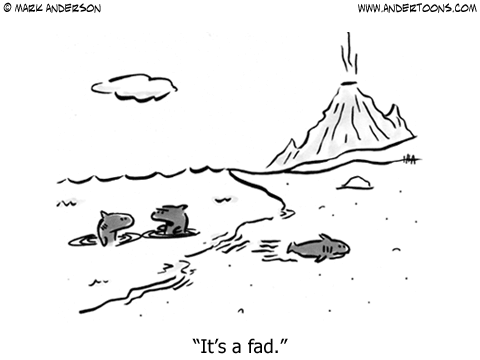
What we need is a "revolutionary, evolutionary" proof.

In the meantime, I run with the Old Earth and Big Bang, but keep an open mind (i.e. agnostic) to biological evolution
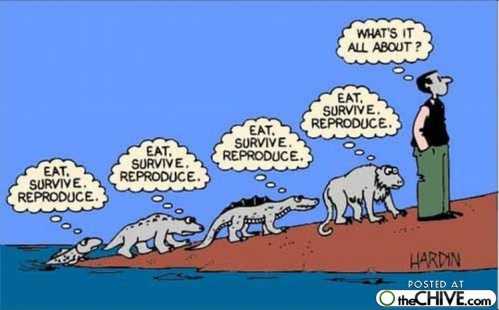
Anglo-Orthodox / Anglo-Catholic; Holy Fool Theologian; Satirist; Pragmatist; Homeopath; Inclusivist / Postmortem Opportunist / Conditionalist;
Contemplation (i.e. Mindfulness, Walking the Red Road, Yoga); Ayurveda; Chinese Medicine; Prosperity (AKA Joel Osteen) / Full Gospel
Contemplation (i.e. Mindfulness, Walking the Red Road, Yoga); Ayurveda; Chinese Medicine; Prosperity (AKA Joel Osteen) / Full Gospel
-

Holy-Fool-P-Zombie - Posts: 2037
- Joined: Mon Oct 20, 2014 6:30 pm
- Location: Near Chicago or hanging out with Holy Fools, P-Zombies, Guardian Angels and Devil's Advocates
Re: Wow, so what do you really believe? ...Statement of Fai
LLC wrote:I really don't know what is meant by the "evening and the morning" of each creation "day", but I can't see how it would be in reference to the beginning and ending of a certain time period as suggested. I can understand for example that plant life would come before animal life, however, generally speaking, these "days" have not ended yet as the creation is still going on.
"Morning" is naturally descriptive of a beginning, and "evening" is naturally descriptive of an ending.
My understanding is that we are still partially within the seventh day. Note that evening and morning are not mentioned in its regard. Jesus Christ's resurrection inaugurates the eighth day, which shall be fully realized at the Second Coming.
Bill Maher asked, "So how do you convince people of the truth?"
Father Reginald Foster answered, "You don't. Forget it. You just have to... You just have to live and die with their stupid ideas. I'm sorry. What are you going to do?"
Father Reginald Foster answered, "You don't. Forget it. You just have to... You just have to live and die with their stupid ideas. I'm sorry. What are you going to do?"
- Geoffrey
- Posts: 908
- Joined: Wed Sep 17, 2008 3:15 pm
Re: Wow, so what do you really believe? ...Statement of Fai
Geoffrey wrote:LLC wrote:I really don't know what is meant by the "evening and the morning" of each creation "day", but I can't see how it would be in reference to the beginning and ending of a certain time period as suggested. I can understand for example that plant life would come before animal life, however, generally speaking, these "days" have not ended yet as the creation is still going on.
"Morning" is naturally descriptive of a beginning, and "evening" is naturally descriptive of an ending.
My understanding is that we are still partially within the seventh day. Note that evening and morning are not mentioned in its regard. Jesus Christ's resurrection inaugurates the eighth day, which shall be fully realized at the Second Coming.
I found this article helps to clarify "evening and morning" at How Long an Evening and a Morning{1}l. Here's some segments from the article:

Let me add a footnote here. Idiomatic expressions in any language presents difficulty. I remember an American professor, who spend a great deal of time in China. He said that Chinese folks learning English, have trouble with idiomatic expressions - like "to kick the bucket". Joe kicked the bucket means he died. But historically, they forced people to stand on buckets, before hanging them. And they kicked the bucket out from under them (i.e. according to this professor). However, let me add a footnote from Wiki, at Kick the bucket. Even though this professor had 2 PhD degrees, Wiki points to multiple theories - as to the kick the bucket, historical idiom meaning.

Now I can work with English, Mandarin, Russian, Spanish, French and Portuguese. But if I didn't know a sentence or expression is idiomatic, I might come up with a "goofy" literal translation. That is, until an expert in the language, let me know it was an idiomatic expression. And shared its actual meaning.

That the Hebrew word for "day," yom, can mean a period of time other than 24 hours is abundantly evident. In Genesis 2:4 we read, "In the day that the Lord god made the earth and heavens..." (RSV). "Day" here refers to all the creations days, what ever we believe about their length. In fact, any student of Scripture can find at least nine meanings of yom. (Perhaps the easiest way is to use a computerized word search.) While it does most often refer to a 24-hour period, it is also used to mean time, today, forever, continually, an age, a life span, and perpetuity.
Perhaps the greatest obstacle to acceptance of the six creation days as long epochs is the "evening and morning" refrain framing each day's creation events. In fact, I have often seen it argued in creationist literature that this expression seals the case for a 24-hour interpretation. But the argument simply does not hold, and the basis for my statement is the Bible itself, not some obscure linguistic reference.
"Evening and morning" is an idiomatic expression in Semitic languages. Like all idioms, its meaning is nonliteral but clearly understood by native speakers. The phrase "evening and morning" can, like yom, denote a long and indefinite period. The Old Testament itself unambiguously uses the "evening and morning" phrase in just such a way. In Daniel 8 we read the account of Daniel's ram and goat vision and the interpretation given by Gabriel. The vision covers many years; some commentators believe the time has not yet been completed. Daniel 8:26 says, "The vision of the evenings and the mornings that have been given to you is true, but seal up the vision for it concerns the distant future" (RSV). In Hebrew manuscripts, "the evenings and mornings," is not in the plural but in the singular, identical to the expression we find in Genesis 1. Translated literally, the verse would red, "And the vision of the evening and the morning that has been given you" Here we have a clear indication from scriptural usage that this phrase does not demand a 24-hour-day interpretation and can refer to an indefinite epoch.
One might raise the objection that during the many years between the writing of Genesis and the writing of Daniel, the Hebrew usage could have changed, making the extrapolation from Daniel back to Genesis questionable. My response to such a challenge would be to underscore the stability of the ancient languages (perhaps due to the lack of general literacy and the rigorous professional training of those who served as scribes.) I see no way to escape this example of flexibility usage.
The method and length of time God used to create the heavens and the earth and life cannot be stated with absolute certainty from science, but these are matters for scientific inquiry, not for dogma. If only I could remove from those Christians who struggle with it the sense of threat they feel when presented with the possibility of long days and an old earth. I know it is linked with their supposition that to accept the fossil record and its time scale is to concede the case for a radically materialistic worldview, i.e., nontheistic evolution. But this supposition is false. In fact, if Christians would cease to attack paleontologists and biologists (among others), the researchers themselves would be free to raise more questions about the validity of their theories rather than combining forces to fend off Christian attacks. Let's not interfere with the investigative process. We Christians have everything to gain and nothing to lose from the advance of scientific discovery. For the God who speaks to us through His works of creation is the same God who speaks to us in the words of the Bible.

All this discussion, reminds me of a song
Last edited by Holy-Fool-P-Zombie on Thu Aug 04, 2016 11:20 am, edited 5 times in total.
Anglo-Orthodox / Anglo-Catholic; Holy Fool Theologian; Satirist; Pragmatist; Homeopath; Inclusivist / Postmortem Opportunist / Conditionalist;
Contemplation (i.e. Mindfulness, Walking the Red Road, Yoga); Ayurveda; Chinese Medicine; Prosperity (AKA Joel Osteen) / Full Gospel
Contemplation (i.e. Mindfulness, Walking the Red Road, Yoga); Ayurveda; Chinese Medicine; Prosperity (AKA Joel Osteen) / Full Gospel
-

Holy-Fool-P-Zombie - Posts: 2037
- Joined: Mon Oct 20, 2014 6:30 pm
- Location: Near Chicago or hanging out with Holy Fools, P-Zombies, Guardian Angels and Devil's Advocates
Re: Wow, so what do you really believe? ...Statement of Fai
Randy, thanks for the helpful information you provided on "morning and evening".
Geoffrey, I think we would still be in all the "days". For example,the creation of all plant varieties or all animal species did not occur in one fell swoop and then it was over. It is still going on. I don't really know how God created the heavens and the earth. I agree with Davo in that I am not a fan of the Big Bang biological evolution theory. I don't think science is able to tell us, nor do I think the Bible is able to tell us either. This is just one of the mysteries of God that will have to remain a mystery.
Maintenance man, The two different accounts of creation could be as you suggest as that between the creation of the earth and the creation of Israel. However it seems to me to be that of two totally different stories of how everything came about. I would even say that there is a third account as well.
Back to the Bible being the "infallible" word of God- When Jesus said "You study the Scriptures, and in them you think you find life....", I believe He was basically saying that Scripture is not infallible; that when it comes between the words of the Bible and that of common sense, then we should go with the common sense.
Geoffrey, I think we would still be in all the "days". For example,the creation of all plant varieties or all animal species did not occur in one fell swoop and then it was over. It is still going on. I don't really know how God created the heavens and the earth. I agree with Davo in that I am not a fan of the Big Bang biological evolution theory. I don't think science is able to tell us, nor do I think the Bible is able to tell us either. This is just one of the mysteries of God that will have to remain a mystery.
Maintenance man, The two different accounts of creation could be as you suggest as that between the creation of the earth and the creation of Israel. However it seems to me to be that of two totally different stories of how everything came about. I would even say that there is a third account as well.
Back to the Bible being the "infallible" word of God- When Jesus said "You study the Scriptures, and in them you think you find life....", I believe He was basically saying that Scripture is not infallible; that when it comes between the words of the Bible and that of common sense, then we should go with the common sense.
- LLC
- Posts: 614
- Joined: Mon Mar 02, 2015 12:45 pm
Re: Wow, so what do you really believe? ...Statement of Fai
Holy Fool, thank you very much for that extensive quote from the article, particularly the part about Daniel 8:26.
A personal note, if I may:
I was raised as a non-denominational, non-churchgoing Protestant. As a young child, I never read any religious books or articles except for the occasional browse through a book of children's Bible stories.
The first time I read the early chapters of Genesis was in my tenth year. It was excruciatingly obvious to me that the days of Genesis 1 were not 24-hour days. How obvious? It was so obvious that it never occurred to me that anyone could possibly think otherwise. The thought that they might be 24-hour days never crossed my mind. Not once.
I dabbled in Protestant books and articles in later years, but it wasn't until I was 16 or 17 that I first encountered someone teaching that Adam and Eve lived at the same time as dinosaurs because the days of Genesis 1 were 24 hours long. I was bewildered at the notion. Not only did it make no sense (i. e., how did Adam and Eve manage to not get eaten by dinosaurs long enough to have babies?), it utterly affronted what I took (and still take) to be the clear meaning of Genesis 1. I initially thought the guy was a lone nut, but it didn't take long for me to discover that that was not the case.
My point? I have seen young earth creationists appeal to how a naive child would read Genesis 1, and they say that this child would naturally read the days as 24-hour days. I can say from my own experience that that was not the case with me. I never had a simple, childlike faith in 24-hour days that was later corroded by geology, thus forcing me to use pretzel interpretation to square the two together. No. My naive, simple, childlike faith was what we call old earth creationism. Whatever else I know about controversies over origins, I know beyond any shadow of a doubt that young earth creationism is not the clear and obvious teaching of Genesis 1.
A personal note, if I may:
I was raised as a non-denominational, non-churchgoing Protestant. As a young child, I never read any religious books or articles except for the occasional browse through a book of children's Bible stories.
The first time I read the early chapters of Genesis was in my tenth year. It was excruciatingly obvious to me that the days of Genesis 1 were not 24-hour days. How obvious? It was so obvious that it never occurred to me that anyone could possibly think otherwise. The thought that they might be 24-hour days never crossed my mind. Not once.
I dabbled in Protestant books and articles in later years, but it wasn't until I was 16 or 17 that I first encountered someone teaching that Adam and Eve lived at the same time as dinosaurs because the days of Genesis 1 were 24 hours long. I was bewildered at the notion. Not only did it make no sense (i. e., how did Adam and Eve manage to not get eaten by dinosaurs long enough to have babies?), it utterly affronted what I took (and still take) to be the clear meaning of Genesis 1. I initially thought the guy was a lone nut, but it didn't take long for me to discover that that was not the case.
My point? I have seen young earth creationists appeal to how a naive child would read Genesis 1, and they say that this child would naturally read the days as 24-hour days. I can say from my own experience that that was not the case with me. I never had a simple, childlike faith in 24-hour days that was later corroded by geology, thus forcing me to use pretzel interpretation to square the two together. No. My naive, simple, childlike faith was what we call old earth creationism. Whatever else I know about controversies over origins, I know beyond any shadow of a doubt that young earth creationism is not the clear and obvious teaching of Genesis 1.
Bill Maher asked, "So how do you convince people of the truth?"
Father Reginald Foster answered, "You don't. Forget it. You just have to... You just have to live and die with their stupid ideas. I'm sorry. What are you going to do?"
Father Reginald Foster answered, "You don't. Forget it. You just have to... You just have to live and die with their stupid ideas. I'm sorry. What are you going to do?"
- Geoffrey
- Posts: 908
- Joined: Wed Sep 17, 2008 3:15 pm
Re: Wow, so what do you really believe? ...Statement of Fai
When I think of all the time (100 years), blood,
sweat and tears Noah must have put into building that massive ark, I
find it hard to believe in a local flood. For instance, the Mesopotamian
valley is approximately 500 miles long by roughly 250 miles wide. All
Noah would have had to do would be to gently walk all the animals out of
that valley to safety in about a week or so.
Furthermore, to the east are the mountains and to the west the plains. Imagine the waters going above the mountains to the east. What held the waters to the west? Did God build a magic wall to hem in all the waters at the same height as they were to the east? No.
Also, people ask: "Where did all the water come from to go above Mt. Everest and where did it all go after it went above Mt. Everest?" To which I reply: "Who said Mt. Everest was even around back them. If it was, it surely was not as high back then as it is today."
Recently archeologists, about a week ago, spoke of a great flood in China. Here it is:
http://www.telegraph.co.uk/news/2016/08/05/first-evidence-of-legendary-china-flood-may-rewrite-history/
What do you think?
Furthermore, to the east are the mountains and to the west the plains. Imagine the waters going above the mountains to the east. What held the waters to the west? Did God build a magic wall to hem in all the waters at the same height as they were to the east? No.
Also, people ask: "Where did all the water come from to go above Mt. Everest and where did it all go after it went above Mt. Everest?" To which I reply: "Who said Mt. Everest was even around back them. If it was, it surely was not as high back then as it is today."
Recently archeologists, about a week ago, spoke of a great flood in China. Here it is:
http://www.telegraph.co.uk/news/2016/08/05/first-evidence-of-legendary-china-flood-may-rewrite-history/
What do you think?
Just because God says He will save all mankind
does not necessarily mean He won't.
does not necessarily mean He won't.
-

Eusebius - Posts: 512
- Joined: Fri Aug 19, 2016 10:19 am
- Location: Michigan
Re: Wow, so what do you really believe? ...Statement of Fai
There are a number of models that reasonably
propose tectonic plate movement. For example suppose there was a Pangea
which seems plausable even to a child looking at a world map with the
continents as puzzle pieces. Then suppose a meteor hits the planet that
breaks the Pangea tectonic plate and also exposes sea water to hot lava
which send billions and billions of gallons of water into the
atmosphere. Consider that numerous large 50 and 100 mile craters are
evident on the earth right now. So then the water rains producing the
global flood and the broken tectonic plates are set into motion
producing our current continents and mountain ranges. One model
proposes that when the tectonic plates were set in motion that they
lowered (for some reason given which I forget) and then when they came
to rest, they floated up to their current level with respect to the sea.
Consider that crude oil which is pumped from +5 miles underground is
the result of 1,000s of years of organic decay. How did the organics
get down that far? The flood was much more cataclysmic than we might
first imagine. Of course the Bible says nothing about HOW the flood was
caused and the simple model proposed above meets with and does not
contradict scientific evidence.
Last edited by [email protected] on Wed Aug 24, 2016 5:33 pm, edited 1 time in total.
Review my eBook http://WWW.DGJC.ORG/OPTIMISM at http://jeff-martin-reposted.signedon.net/forum/viewtopic.php?f=10&t=5695&e=0. Follow at https://www.facebook.com/DiscipledByTheGraceOfJesusChrist. Have a great day and keep looking up!
-

[email protected] - Posts: 363
- Joined: Sat Jun 28, 2014 7:18 pm
- Location: Pennsylvania
Re: Wow, so what do you really believe? ...Statement of Fai
Eusebius wrote:When I think of all the time (100 years), blood, sweat and tears Noah must have put into building that massive ark, I find it hard to believe in a local flood. For instance, the Mesopotamian valley is approximately 500 miles long by roughly 250 miles wide. All Noah would have had to do would be to gently walk all the animals out of that valley to safety in about a week or so.
Furthermore, to the east are the mountains and to the west the plains. Imagine the waters going above the mountains to the east. What held the waters to the west? Did God build a magic wall to hem in all the waters at the same height as they were to the east? No.
Noah did not walk all the animals to safety because God commanded him to build an ark. That was reason enough for Noah. We can speculate why God told Noah to build an ark rather than leave the area. I think it was because of witness. Noah building that ark was a giant invitation sign to all of humanity to repent. Instead of merely quietly walking away and leaving mankind to face an unannounced Flood, Noah made sure that he gave every single person on planet Earth a good, long chance to repent and take shelter in the ark. (This, incidentally, is an indirect indication that all of mankind lived in a small area, rather than being spread abroad over the planet. If mankind had lived all over, most people at the time of the Flood would not have even heard of Noah and his ark.)
I am not dogmatic about where mankind lived in the days before the Flood. It could have been, for example, on an island in the Persian Gulf that was destroyed by the Flood.
Bill Maher asked, "So how do you convince people of the truth?"
Father Reginald Foster answered, "You don't. Forget it. You just have to... You just have to live and die with their stupid ideas. I'm sorry. What are you going to do?"
Father Reginald Foster answered, "You don't. Forget it. You just have to... You just have to live and die with their stupid ideas. I'm sorry. What are you going to do?"
- Geoffrey
- Posts: 908
- Joined: Wed Sep 17, 2008 3:15 pm
Re: Wow, so what do you really believe? ...Statement of Fai
But if jeff@gdc is correct concerning Pangea,
and if Noah preached righteousness for 100 or more years while building
the ark, I see no problem with humans back then on Pangea knowing what
Noah was up to. There may have been 10 to 11 million people on the
planet back in Noah's day. https://biblescienceguy.wordpress.com/2014/06/18/4-population-growth-how-many-died-in-noahs-flood/
There may have been many more than that. I'm sure Noah was the butt of
all jokes in his day. People probably traveled for many miles just to
make fun of him.
Imagine living in Noah's day and seeing this:
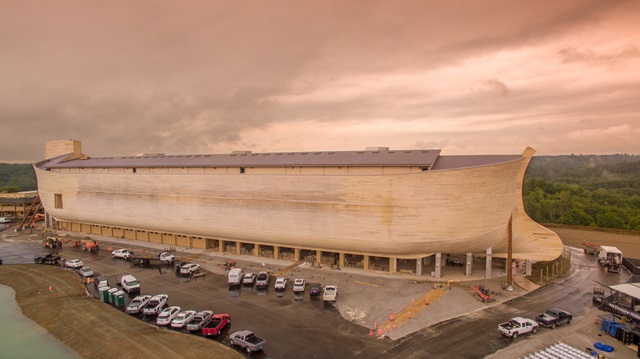
And yet they still didn't repent.
I have conversed with many atheists on message boards over this issue of God flooding the earth. They call God a baby killer and so on. I tell them they are not looking at the whole picture. They need to see that God is going to save all those people who died in that flood. None of them are going to complain to God, so why do you atheists?
Also, I doubt if Noah lived on an island in the Persian gulf that God would have Noah take 100 years to build a massive ark to save his family and the animals if it was just going to be a local flood.
And just one more little tid bit: I think people did live all over Pangea since we have ancient structures around the globe which some archeologists date to 10,000 years ago or further.
Imagine living in Noah's day and seeing this:

And yet they still didn't repent.
I have conversed with many atheists on message boards over this issue of God flooding the earth. They call God a baby killer and so on. I tell them they are not looking at the whole picture. They need to see that God is going to save all those people who died in that flood. None of them are going to complain to God, so why do you atheists?
Also, I doubt if Noah lived on an island in the Persian gulf that God would have Noah take 100 years to build a massive ark to save his family and the animals if it was just going to be a local flood.
And just one more little tid bit: I think people did live all over Pangea since we have ancient structures around the globe which some archeologists date to 10,000 years ago or further.
Just because God says He will save all mankind
does not necessarily mean He won't.
does not necessarily mean He won't.
-

Eusebius - Posts: 512
- Joined: Fri Aug 19, 2016 10:19 am
- Location: Michigan
Re: Wow, so what do you really believe? ...Statement of Fai
I suspect that the size of the ark was
commensurate with the human population at the time of the Flood. The ark
was basically saying, "Look! There is room for ALL of you!" Thus we are
talking about a population in the thousands rather than in the millions
or trillions (as claimed in the article). With a vast population size,
the ark could only say, "Look! Virtually all of you are doomed no matter
what. There's no room!"
I think that a huge and mostly-empty ark, which could have saved every single human being, is a powerful testimony to God's love and to man's wickedness.
I think that a huge and mostly-empty ark, which could have saved every single human being, is a powerful testimony to God's love and to man's wickedness.
Bill Maher asked, "So how do you convince people of the truth?"
Father Reginald Foster answered, "You don't. Forget it. You just have to... You just have to live and die with their stupid ideas. I'm sorry. What are you going to do?"
Father Reginald Foster answered, "You don't. Forget it. You just have to... You just have to live and die with their stupid ideas. I'm sorry. What are you going to do?"
- Geoffrey
- Posts: 908
- Joined: Wed Sep 17, 2008 3:15 pm
Re: Wow, so what do you really believe? ...Statement of Fai
Highly unlikely that the ark could house the world population in Noah's day!
However, just because the ark couldn't house all doesn't mean there wasn't opportunity to repent and be saved. The world could have repented as did Nineveh to Jonah's preaching and maybe it would have been a different story. Or they could have built their own arks had they believed with holy reverence as did Noah.
However, just because the ark couldn't house all doesn't mean there wasn't opportunity to repent and be saved. The world could have repented as did Nineveh to Jonah's preaching and maybe it would have been a different story. Or they could have built their own arks had they believed with holy reverence as did Noah.
Review my eBook http://WWW.DGJC.ORG/OPTIMISM at http://jeff-martin-reposted.signedon.net/forum/viewtopic.php?f=10&t=5695&e=0. Follow at https://www.facebook.com/DiscipledByTheGraceOfJesusChrist. Have a great day and keep looking up!
-

[email protected] - Posts: 363
- Joined: Sat Jun 28, 2014 7:18 pm
- Location: Pennsylvania
Re: Wow, so what do you really believe? ...Statement of Fai
[email protected] wrote:Highly unlikely that the ark could house the world population in Noah's day!
Why?
Note that the Flood was the only time in mankind's history that God essentially wiped-out everyone and started over. This implies that the time of Noah was markedly worse than any other time. That means worse than Stalinist gulags, worse than Nazi death camps, worse than massive Aztec human sacrifice, worse than the current abortion holocaust, etc. Whatever atrocities have been recorded in human history, the wickedness of Noah's generation was far worse.
Does the text give details? A bit: "The end of all flesh has come before Me, for the land is filled with violence through them" (Genesis 6:13). These men were violent, more violent than anyone in history. It is possible to read this passage as saying that, left to their own devices, pre-Flood mankind was nearing the point of causing the extinction of all mankind (who were therefore few in number). Therefore God had to act to save His created image. The Flood was not meant to annihilate mankind, but to prevent the annihilation of mankind. This called for severe amputation.
Clearly, those men who were recalcitrant in their unparalleled violence had to be killed. Otherwise they would have encompassed human extinction. The Flood saved mankind. With the Flood there were eight survivors. Without the Flood there would have been zero survivors. Let us thank God for His merciful Flood!
Bill Maher asked, "So how do you convince people of the truth?"
Father Reginald Foster answered, "You don't. Forget it. You just have to... You just have to live and die with their stupid ideas. I'm sorry. What are you going to do?"
Father Reginald Foster answered, "You don't. Forget it. You just have to... You just have to live and die with their stupid ideas. I'm sorry. What are you going to do?"
- Geoffrey
- Posts: 908
- Joined: Wed Sep 17, 2008 3:15 pm
Re: Wow, so what do you really believe? ...Statement of Fai
Eusebius wrote:Furthermore, to the east are the mountains and to the west the plains. Imagine the waters going above the mountains to the east. What held the waters to the west? Did God build a magic wall to hem in all the waters at the same height as they were to the east? No.
Also, people ask: "Where did all the water come from to go above Mt. Everest and where did it all go after it went above Mt. Everest?" To which I reply: "Who said Mt. Everest was even around back them. If it was, it surely was not as high back then as it is today."
Isn’t your “Mt. Everest” rationale just a tad convenient WHEN you excuse away with a “magic wall” the possibility of something in-kind in terms of geological formation holding the said waters of a ‘local flood’? Consistency??
“...the power and mercy of God’s grace is NOT limited to man’s ability to comprehend it...”
-

davo - Posts: 1223
- Joined: Tue Sep 25, 2012 9:10 am
- Location: Brisbane Australia
Re: Wow, so what do you really believe? ...Statement of Fai
Why?
Hmmm, I guess I was just speaking from a guesstimate of the world population based on calculations. I probably need to step back from speculation on this point. I was drawn into the discussion because you suggested that available seats on the ark for all mankind seemed to be a necessity to prove that God is gracious. I was merely pointing out that this was not necessary because grace was available to those lost through alternative means... as I pointed out they also could have built arks in holy fear or repented as the Ninevites, but apparently none did. Thus the number of those lost in the flood is not critical to the point in question. God was and is always gracious regardless of the number lost in the flood.
Also you make a point that mankind's violence was the primary concern. Certainly it was a concern and perhaps the primary concern, but you might be going too far with your conclusion that the ark was created to save mankind from self-destruction through violence. All certainly agree that the nature of the sin warranted radical measures. However, the first sin listed, perhaps by way of importance, is the marrying of any they chose. The emphasis here is that God was not joining husband and wife together, but instead man himself. One might read a sexually related sin into this crime. I could imagine sins in this department that would likewise provoke God to have to clean the slate. Perhaps both sins provoked God to his radical decision.
Review my eBook http://WWW.DGJC.ORG/OPTIMISM at http://jeff-martin-reposted.signedon.net/forum/viewtopic.php?f=10&t=5695&e=0. Follow at https://www.facebook.com/DiscipledByTheGraceOfJesusChrist. Have a great day and keep looking up!
-

[email protected] - Posts: 363
- Joined: Sat Jun 28, 2014 7:18 pm
- Location: Pennsylvania
Re: Wow, so what do you really believe? ...Statement of Fai
Randy wrote:"Evening and morning" is an idiomatic expression in Semitic languages. Like all idioms, its meaning is nonliteral but clearly understood by native speakers. The phrase "evening and morning" can, like yom, denote a long and indefinite period. The Old Testament itself unambiguously uses the "evening and morning" phrase in just such a way.
There is clear evidence that "evening and morning" is literal.
Psalms 55:17 Evening and morning and at noon I will pray, and cry aloud, And He shall hear my voice.
Throughout Hebrew and Jewish history, the literal day began at sundown and ended just before sundown 24 hours later.
Why Jewish holidays begin at nightfall
Paidion
Man judges a person by his past deeds, and administers penalties for his wrongdoing. God judges a person by his present character, and disciplines him that he may become righteous.
Avatar shows me at 76 years. I am now in my 80th year of life.
Man judges a person by his past deeds, and administers penalties for his wrongdoing. God judges a person by his present character, and disciplines him that he may become righteous.
Avatar shows me at 76 years. I am now in my 80th year of life.
-

Paidion - Posts: 3296
- Joined: Sun Jan 11, 2009 8:38 pm
- Location: The Back Woods of North-Western Ontario
Re: Wow, so what do you really believe? ...Statement of Fai

As embarrassing as it is (IMO) Ken Ham’s ‘Answer in Genesis’ was an Australian creation. I remember as a young teenager in the early 70’s attending one of his ‘creation-science’ seminars, which at the time were all the rage in evangelical circles. After his first couple of forays into the US he twigged pretty smartly as to where the lucrative market lay and has been there ever since.
“...the power and mercy of God’s grace is NOT limited to man’s ability to comprehend it...”
-

davo - Posts: 1223
- Joined: Tue Sep 25, 2012 9:10 am
- Location: Brisbane Australia
Re: Wow, so what do you really believe? ...Statement of Fai
Paidion wrote:Randy wrote:"Evening and morning" is an idiomatic expression in Semitic languages. Like all idioms, its meaning is nonliteral but clearly understood by native speakers. The phrase "evening and morning" can, like yom, denote a long and indefinite period. The Old Testament itself unambiguously uses the "evening and morning" phrase in just such a way.
There is clear evidence that "evening and morning" is literal.
Psalms 55:17 Evening and morning and at noon I will pray, and cry aloud, And He shall hear my voice.
Throughout Hebrew and Jewish history, the literal day began at sundown and ended just before sundown 24 hours later.
Why Jewish holidays begin at nightfall
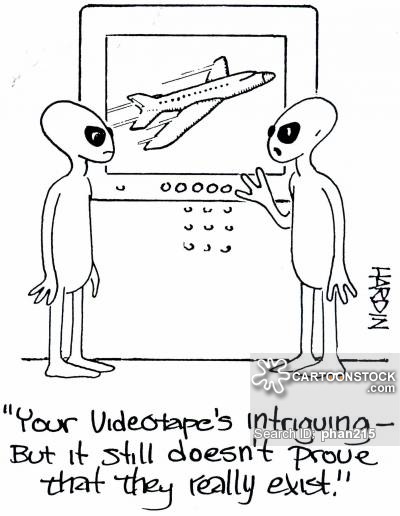
If Jewish holidays begin at nightfall, but "evening and morning" at How Long an Evening and a Morning{1}l is an idiomatic expression in ancient Semitic languages (i.e. Hebrew), how do we know whether the phase is used literally or idiomatically (or maybe some other way, as other scholars have suggested different approaches) - in Genesis? How do we know which scholars are correct?

Last edited by Holy-Fool-P-Zombie on Thu Aug 25, 2016 4:17 pm, edited 3 times in total.
Anglo-Orthodox / Anglo-Catholic; Holy Fool Theologian; Satirist; Pragmatist; Homeopath; Inclusivist / Postmortem Opportunist / Conditionalist;
Contemplation (i.e. Mindfulness, Walking the Red Road, Yoga); Ayurveda; Chinese Medicine; Prosperity (AKA Joel Osteen) / Full Gospel
Contemplation (i.e. Mindfulness, Walking the Red Road, Yoga); Ayurveda; Chinese Medicine; Prosperity (AKA Joel Osteen) / Full Gospel
-

Holy-Fool-P-Zombie - Posts: 2037
- Joined: Mon Oct 20, 2014 6:30 pm
- Location: Near Chicago or hanging out with Holy Fools, P-Zombies, Guardian Angels and Devil's Advocates
Re: Wow, so what do you really believe? ...Statement of Fai
Holy-Fool-P-Zombie wrote:Paidion wrote:Randy wrote:"Evening and morning" is an idiomatic expression in Semitic languages. Like all idioms, its meaning is nonliteral but clearly understood by native speakers. The phrase "evening and morning" can, like yom, denote a long and indefinite period. The Old Testament itself unambiguously uses the "evening and morning" phrase in just such a way.
There is clear evidence that "evening and morning" is literal.
Psalms 55:17 Evening and morning and at noon I will pray, and cry aloud, And He shall hear my voice.
Throughout Hebrew and Jewish history, the literal day began at sundown and ended just before sundown 24 hours later.
Why Jewish holidays begin at nightfall
If Jewish holidays begin at nightfall, but "evening and morning" at How Long an Evening and a Morning{1}l is an idiomatic expression in ancient Semitic languages (i.e. Hebrew), how do we know whether the phase is used literally or idiomatically - in Genesis? How do we know which scholars are correct?
In Genesis, one light and one dark cycle is a day. There were seven light and dark cycles to a week. Day 1 is a solar day. Day 2 is a solar day etc. In other words, it is defined by one rotation of the earth. So, beginning at evening, lasting through the night, going through the duration of daylight until the next evening was considered a day. It was not considered an age.
Just because God says He will save all mankind
does not necessarily mean He won't.
does not necessarily mean He won't.
-

Eusebius - Posts: 512
- Joined: Fri Aug 19, 2016 10:19 am
- Location: Michigan
Re: Wow, so what do you really believe? ...Statement of Fai
davo wrote:Eusebius wrote:Furthermore, to the east are the mountains and to the west the plains. Imagine the waters going above the mountains to the east. What held the waters to the west? Did God build a magic wall to hem in all the waters at the same height as they were to the east? No.
Also, people ask: "Where did all the water come from to go above Mt. Everest and where did it all go after it went above Mt. Everest?" To which I reply: "Who said Mt. Everest was even around back them. If it was, it surely was not as high back then as it is today."
Isn’t your “Mt. Everest” rationale just a tad convenient WHEN you excuse away with a “magic wall” the possibility of something in-kind in terms of geological formation holding the said waters of a ‘local flood’? Consistency??
We know Mt. Everest was not as high in Noah's day as it is today. Therefore that is a scientific fact.
I really doubt God created a magic wall to hold the waters in the Mesopotamian valley to the North, South and West, just so thousands of years later, people could call it a local flood.
It is scientifically impossible for the flood of Mesopotamia to be local if the mountains to the east were under water.
Just because God says He will save all mankind
does not necessarily mean He won't.
does not necessarily mean He won't.
-

Eusebius - Posts: 512
- Joined: Fri Aug 19, 2016 10:19 am
- Location: Michigan
Re: Wow, so what do you really believe? ...Statement of Fai
davo wrote:
As embarrassing as it is (IMO) Ken Ham’s ‘Answer in Genesis’ was an Australian creation. I remember as a young teenager in the early 70’s attending one of his ‘creation-science’ seminars, which at the time were all the rage in evangelical circles. After his first couple of forays into the US he twigged pretty smartly as to where the lucrative market lay and has been there ever since.
The point is not about Ken Ham and his business practices. My point was the SIZE of Noah's Ark and if you were living in Noah's day and saw that ark, don't you think the word would spread all over Pangea?
Just because God says He will save all mankind
does not necessarily mean He won't.
does not necessarily mean He won't.
-

Eusebius - Posts: 512
- Joined: Fri Aug 19, 2016 10:19 am
- Location: Michigan
Re: Wow, so what do you really believe? ...Statement of Fai
Eusebius wrote:In Genesis, one light and one dark cycle is a day. There were seven light and dark cycles to a week. Day 1 is a solar day. Day 2 is a solar day etc. In other words, it is defined by one rotation of the earth. So, beginning at evening, lasting through the night, going through the duration of daylight until the next evening was considered a day. It was not considered an age.

The scholarly article in Science and God at Genesis Clearly Teaches that the Days Were Not 24 Hours (for example) - begs to differ.
And even if scholars could reach a consensus, there's still the problem of Genesis and modern science, along with inerrancy and infallibility - in regards to understanding Genesis.
Last edited by Holy-Fool-P-Zombie on Thu Aug 25, 2016 4:15 pm, edited 1 time in total.
Anglo-Orthodox / Anglo-Catholic; Holy Fool Theologian; Satirist; Pragmatist; Homeopath; Inclusivist / Postmortem Opportunist / Conditionalist;
Contemplation (i.e. Mindfulness, Walking the Red Road, Yoga); Ayurveda; Chinese Medicine; Prosperity (AKA Joel Osteen) / Full Gospel
Contemplation (i.e. Mindfulness, Walking the Red Road, Yoga); Ayurveda; Chinese Medicine; Prosperity (AKA Joel Osteen) / Full Gospel
-

Holy-Fool-P-Zombie - Posts: 2037
- Joined: Mon Oct 20, 2014 6:30 pm
- Location: Near Chicago or hanging out with Holy Fools, P-Zombies, Guardian Angels and Devil's Advocates
Re: Wow, so what do you really believe? ...Statement of Fai
[email protected] wrote:Highly unlikely that the ark could house the world population in Noah's day!
However, just because the ark couldn't house all doesn't mean there wasn't opportunity to repent and be saved. The world could have repented as did Nineveh to Jonah's preaching and maybe it would have been a different story. Or they could have built their own arks had they believed with holy reverence as did Noah.
Nice thoughts.
I suspect, God knowing the heart of mankind, knew in advance only 8 would be saved.
It is not that God just "knows the end from be beginning" though to be sure that is incredible. It is scriptural to state:
"God declares the end from the beginning" (Isa.46:10) and so He declared what the end would be prior to the flood.
Some have asked me, "If God already knew only 8 would be saved, why did He plead with mankind for 100 years to repent prior to the flood?" My answer would be that mankind didn't know just how evil their heart was. And so God had to reveal that to them.
It is like God gave the law to Israel even though He knew in advance Israel could not keep the law. But Israel thought she could keep the law. So it was a lesson to be learned.
Just because God says He will save all mankind
does not necessarily mean He won't.
does not necessarily mean He won't.
-

Eusebius - Posts: 512
- Joined: Fri Aug 19, 2016 10:19 am
- Location: Michigan
Re: Wow, so what do you really believe? ...Statement of Fai
The point is not about Ken Ham and his business practices. My point was the SIZE of Noah's Ark and if you were living in Noah's day and saw that ark, don't you think the word would spread all over Pangea?
I am sorry I lost the tracking of this argument, however, your question is very interesting. Regarding Scriptural data I cannot think of much. However, I speculate that the witness of Noah was universally heard by all mankind so that the condemnation of unbelieving mankind was just, fair, and universal. God is always just and fair. Hebrews 11:7 suggests that Noah's witness was heard by all mankind.
Review my eBook http://WWW.DGJC.ORG/OPTIMISM at http://jeff-martin-reposted.signedon.net/forum/viewtopic.php?f=10&t=5695&e=0. Follow at https://www.facebook.com/DiscipledByTheGraceOfJesusChrist. Have a great day and keep looking up!
-

[email protected] - Posts: 363
- Joined: Sat Jun 28, 2014 7:18 pm
- Location: Pennsylvania
Re: Wow, so what do you really believe? ...Statement of Fai
Holy-Fool-P-Zombie wrote:Eusebius wrote:In Genesis, one light and one dark cycle is a day. There were seven light and dark cycles to a week. Day 1 is a solar day. Day 2 is a solar day etc. In other words, it is defined by one rotation of the earth. So, beginning at evening, lasting through the night, going through the duration of daylight until the next evening was considered a day. It was not considered an age.
The scholarly article in Science and God at Genesis Clearly Teaches that the Days Were Not 24 Hours (for example) - begs to differ.
And even if scholars could reach a consensus, there's still the problem of Genesis and modern science, along with inerrancy and infallibility - in regards to understanding Genesis.
How many hours are "from evening to morning" to "evening to morning" to "evening to morning" to "evening to morning" ect.?
In other words, if you go from one evening to the beginning of the next evening, that is one solar cycle, it is not?
Just because God says He will save all mankind
does not necessarily mean He won't.
does not necessarily mean He won't.
-

Eusebius - Posts: 512
- Joined: Fri Aug 19, 2016 10:19 am
- Location: Michigan
Re: Wow, so what do you really believe? ...Statement of Fai
Eusebius wrote:Holy-Fool-P-Zombie wrote:Eusebius wrote:In Genesis, one light and one dark cycle is a day. There were seven light and dark cycles to a week. Day 1 is a solar day. Day 2 is a solar day etc. In other words, it is defined by one rotation of the earth. So, beginning at evening, lasting through the night, going through the duration of daylight until the next evening was considered a day. It was not considered an age.
The scholarly article in Science and God at Genesis Clearly Teaches that the Days Were Not 24 Hours (for example) - begs to differ.
And even if scholars could reach a consensus, there's still the problem of Genesis and modern science, along with inerrancy and infallibility - in regards to understanding Genesis.
How many hours are "from evening to morning" to "evening to morning" to "evening to morning" to "evening to morning" ect.?
In other words, if you go from one evening to the beginning of the next evening, that is one solar cycle, it is not?
No. Not necessarily See how days are used in different ways, in the article. I think you are over simplifying science and the Genesis creation story, when each day could be understood differently - in terms of both biblical exegesis and modern science.
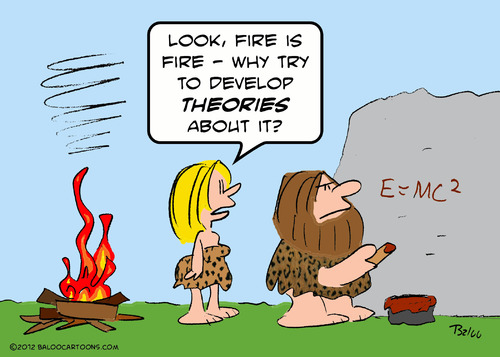
Some questions for you:
- Did you read The scholarly article in Science and God at Genesis Clearly Teaches that the Days Were Not 24 Hours
? What is your reaction to the article? Especially, how they relate
the different days of the creation story and a 24-hour period?
- Where do you stand on modern science and their evidence of the big bang, old earth, Carbon-14 dating, evolution, etc?
- Where do you stand on biblical inerrancy and infallibility?
Last edited by Holy-Fool-P-Zombie on Thu Aug 25, 2016 6:00 pm, edited 3 times in total.
Anglo-Orthodox / Anglo-Catholic; Holy Fool Theologian; Satirist; Pragmatist; Homeopath; Inclusivist / Postmortem Opportunist / Conditionalist;
Contemplation (i.e. Mindfulness, Walking the Red Road, Yoga); Ayurveda; Chinese Medicine; Prosperity (AKA Joel Osteen) / Full Gospel
Contemplation (i.e. Mindfulness, Walking the Red Road, Yoga); Ayurveda; Chinese Medicine; Prosperity (AKA Joel Osteen) / Full Gospel
-

Holy-Fool-P-Zombie - Posts: 2037
- Joined: Mon Oct 20, 2014 6:30 pm
- Location: Near Chicago or hanging out with Holy Fools, P-Zombies, Guardian Angels and Devil's Advocates
Re: Wow, so what do you really believe? ...Statement of Fai
Holy-Fool-P-Zombie wrote:
Some questions for you:Did you read The scholarly article in Science and God at Genesis Clearly Teaches that the Days Were Not 24 Hours ? What is your reaction to the article? Especially, how the relate the different days of the creation story and a 24-hour period?
Where do you stand on modern science and their evidence of the big bang, old earth, Carbon-14 dating, evolution, etc?
Where do you stand on biblical inerrancy and infallibility?
I will have to read more from your link. I did read some.
As to the "Big Bang", scientifically speaking, I don't see how there could have been the sound of a bang since space is a vacuum. However God did spread the universe out as a tent, the OT states.
I am one who believes Genesis 1:1 is when God created the heavens and earth and that Genesis 1:2 is when the earth became chaos and vacant of all life. Genesis 1:2c is when God began to make the already existent earth habitable again. There could be millions of years between 1:1 and 1:2c.
Some call it "the gap theory" but I call it "the gap fact."
Isa_45:18 For thus says Yahweh, Creator of the heavens; He is the Elohim, and Former of the earth, and its Maker, and He, He established it. He did not create it a chaos. He formed it to be indwelt. "I am Yahweh, and there is none else."
Since He did not create the earth a choas, it had to become chaos and vacant.
I am also one who does not believe man evolved from a "knuckle dragger" if you will. 6 or so thousand years is just too short a time for that kind of evolution to have occurred after the earth became vacant of all life and God making the earth habitable again.
Just because God says He will save all mankind
does not necessarily mean He won't.
does not necessarily mean He won't.
-

Eusebius - Posts: 512
- Joined: Fri Aug 19, 2016 10:19 am
- Location: Michigan
Re: Wow, so what do you really believe? ...Statement of Fai
"If you are irritated by every rub, how will your mirror be polished?"-- Rumi
I think you will find, Eusebius, that if folks ask the right questions - they might find their positions are not that far apart.

Mainline Christians would normally fall, into one of 2 categories:
- Basically,
there are those who believe in different findings of modern science:
Big Bang, evolution, carbon-14 dating, etc. Not everyone would believe
in all modern science findings.
- Then there are those that
believe that every word of the Bible is true. And any apparent
contradictions, need to be explained away. That's the whole thrust of
"creation science".
It depending on which side Bible scholars and theologians side with.
- Do
they try to explain all scientific findings, theories and experiments,
into a 7 day, 24-hour creation cycle (i.e. creation science)?
- Or do they try to explain it, with a longer creation cycle (i.e. gap theory, as you mentioned)?
Jeff - who started this thread - prefers the first category. Most others here (like myself), prefer some variant on the second category.
Last edited by Holy-Fool-P-Zombie on Thu Aug 25, 2016 4:13 pm, edited 2 times in total.
Anglo-Orthodox / Anglo-Catholic; Holy Fool Theologian; Satirist; Pragmatist; Homeopath; Inclusivist / Postmortem Opportunist / Conditionalist;
Contemplation (i.e. Mindfulness, Walking the Red Road, Yoga); Ayurveda; Chinese Medicine; Prosperity (AKA Joel Osteen) / Full Gospel
Contemplation (i.e. Mindfulness, Walking the Red Road, Yoga); Ayurveda; Chinese Medicine; Prosperity (AKA Joel Osteen) / Full Gospel
-

Holy-Fool-P-Zombie - Posts: 2037
- Joined: Mon Oct 20, 2014 6:30 pm
- Location: Near Chicago or hanging out with Holy Fools, P-Zombies, Guardian Angels and Devil's Advocates
Re: Wow, so what do you really believe? ...Statement of Fai
Hi HFPZ,
Well I re-visited the link you provided (thank you for that) re: days in the Genesis account.
Here is something they wrote:
Of course I disagree with their idea above that God created the universe, including the earth on the first day. Genesis doesn't say such.
I am of the persuasion that the spirit of God creating a vibrational frequency over the waters separated the waters and also the creation of light is the summation of what God did on the first day of making the earth habitable again. Remember, God did not create the earth a chaos. Therefore the creation of the heavens and earth and becoming a chaos etc. did not occur on day one.
Well I re-visited the link you provided (thank you for that) re: days in the Genesis account.
Here is something they wrote:
"24-hours days - Day 1 Next, let's examine the Genesis days to see if they fit the 24-hour interpretation. Many things happen n the first day. God created the entire universe, including the earth. God also began the period of daylight and night on the earth. Although science tells us that these events took much more than 24 hours, there is nothing in the biblical text that would clearly indicate that the day could not be 24 hours long.3 The 24-hour interpretation passes the test for the first day."
Of course I disagree with their idea above that God created the universe, including the earth on the first day. Genesis doesn't say such.
I am of the persuasion that the spirit of God creating a vibrational frequency over the waters separated the waters and also the creation of light is the summation of what God did on the first day of making the earth habitable again. Remember, God did not create the earth a chaos. Therefore the creation of the heavens and earth and becoming a chaos etc. did not occur on day one.
Just because God says He will save all mankind
does not necessarily mean He won't.
does not necessarily mean He won't.
-

Eusebius - Posts: 512
- Joined: Fri Aug 19, 2016 10:19 am
- Location: Michigan
Re: Wow, so what do you really believe? ...Statement of Fai
Eusebius wrote:Hi HFPZ,
Well I re-visited the link you provided (thank you for that) re: days in the Genesis account.
Here is something they wrote:"24-hours days - Day 1 Next, let's examine the Genesis days to see if they fit the 24-hour interpretation. Many things happen n the first day. God created the entire universe, including the earth. God also began the period of daylight and night on the earth. Although science tells us that these events took much more than 24 hours, there is nothing in the biblical text that would clearly indicate that the day could not be 24 hours long.3 The 24-hour interpretation passes the test for the first day."
Of course I disagree with their idea above that God created the universe, including the earth on the first day. Genesis doesn't say such.
I am of the persuasion that the spirit of God creating a vibrational frequency over the waters separated the waters and also the creation of light is the summation of what God did on the first day of making the earth habitable again. Remember, God did not created the earth a chaos. Therefore the creation of the heavens and earth and becoming a chaos etc. did not occur on day one.
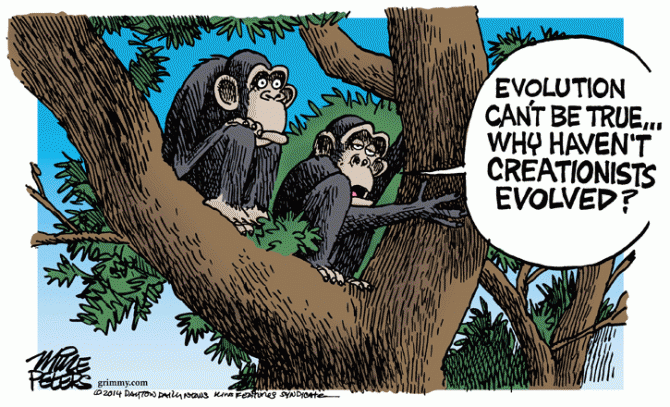
Yes. They feel some things were done in 24 hours, on a particular day. And some "days" in Genesis, would take more than '24 hours", to accomplish everything the text said. And they didn't bring in science, to explain the text - like they said.
Everyone will have their own spin on different Biblical texts. Either here on this forum, or in the mainstream Roman Catholic, Eastern Orthodox and Protestant worlds.
So those on this forum, that are good at arguments and academic style presentations, can really put forth any biblical viewpoint - and defend it. All via Sola Scriptura. Same thing is true in the mainstream Roman Catholic, Eastern Orthodox and Protestant worlds.

Last edited by Holy-Fool-P-Zombie on Thu Aug 25, 2016 4:10 pm, edited 2 times in total.
Anglo-Orthodox / Anglo-Catholic; Holy Fool Theologian; Satirist; Pragmatist; Homeopath; Inclusivist / Postmortem Opportunist / Conditionalist;
Contemplation (i.e. Mindfulness, Walking the Red Road, Yoga); Ayurveda; Chinese Medicine; Prosperity (AKA Joel Osteen) / Full Gospel
Contemplation (i.e. Mindfulness, Walking the Red Road, Yoga); Ayurveda; Chinese Medicine; Prosperity (AKA Joel Osteen) / Full Gospel
-

Holy-Fool-P-Zombie - Posts: 2037
- Joined: Mon Oct 20, 2014 6:30 pm
- Location: Near Chicago or hanging out with Holy Fools, P-Zombies, Guardian Angels and Devil's Advocates
Re: Wow, so what do you really believe? ...Statement of Fai
Holy-Fool-P-Zombie wrote:Yes. They feel some things were done in 24 hours, on a particular day. And some "days" in Genesis, would take more than '24 hours", to accomplish everything the text said. And they didn't bring in science, to explain the text - like they said.
Everyone will have their own spin on different Biblical texts. Either here on this forum, or in the mainstream Roman Catholic, Eastern Orthodox and Protestant worlds.
So those on this forum, that are good at arguments and academic style presentations, can really put forth any biblical viewpoint - and defend it. All via Sola Scriptura. Same thing is true in the mainstream Roman Catholic, Eastern Orthodox and Protestant worlds.
Yes, this is why I like to just share my understandings. If folks don't see things the way I do, at least we can be respectful of opposing ideas.
Just because God says He will save all mankind
does not necessarily mean He won't.
does not necessarily mean He won't.
-

Eusebius - Posts: 512
- Joined: Fri Aug 19, 2016 10:19 am
- Location: Michigan
Re: Wow, so what do you really believe? ...Statement of Fai
Eusebius wrote:Holy-Fool-P-Zombie wrote:Yes. They feel some things were done in 24 hours, on a particular day. And some "days" in Genesis, would take more than '24 hours", to accomplish everything the text said. And they didn't bring in science, to explain the text - like they said.
Everyone will have their own spin on different Biblical texts. Either here on this forum, or in the mainstream Roman Catholic, Eastern Orthodox and Protestant worlds.
So those on this forum, that are good at arguments and academic style presentations, can really put forth any biblical viewpoint - and defend it. All via Sola Scriptura. Same thing is true in the mainstream Roman Catholic, Eastern Orthodox and Protestant worlds.
Yes, this is why I like to just share my understandings. If folks don't see things the way I do, at least we can be respectful of opposing ideas.

I look at things this way. What we are trying to do is reconcile the findings of modern science and Genesis. There are many ways to do this:
- The Gap theory, like you suggested.
- The God and Science article position
- The Morning and Evening as an Idiom
- Etc.

If someone can put forth a reasonable and arguable position, to bridge modern science and Genesis (other then to fit them into a 24 hour times 7 framework) - I'm all for it.
I do have great respect for folks like Paidion, Jason and Davo. They are very good at putting forth positions and defending them. And to understand my mannerism, you need to be familiar with the historical Eastern Orthodox, Holy Fools tradition.
For what we are discussing now, just give me some reasonable theories and ideas, to reconcile the findings of modern science and Genesis (other then to fit them into a 24 hour times 7 framework) .
Build me an escalator to Mt. Everest and I'm happy.
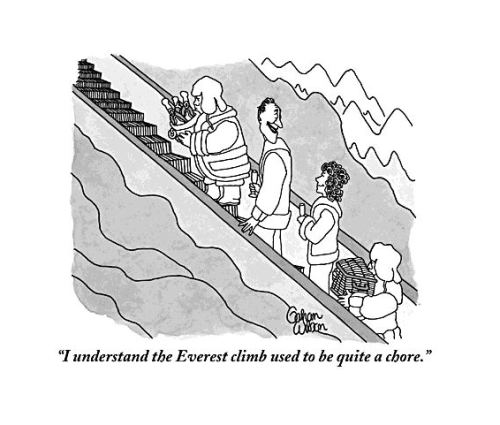
Last edited by Holy-Fool-P-Zombie on Thu Aug 25, 2016 4:03 pm, edited 2 times in total.
Anglo-Orthodox / Anglo-Catholic; Holy Fool Theologian; Satirist; Pragmatist; Homeopath; Inclusivist / Postmortem Opportunist / Conditionalist;
Contemplation (i.e. Mindfulness, Walking the Red Road, Yoga); Ayurveda; Chinese Medicine; Prosperity (AKA Joel Osteen) / Full Gospel
Contemplation (i.e. Mindfulness, Walking the Red Road, Yoga); Ayurveda; Chinese Medicine; Prosperity (AKA Joel Osteen) / Full Gospel
-

Holy-Fool-P-Zombie - Posts: 2037
- Joined: Mon Oct 20, 2014 6:30 pm
- Location: Near Chicago or hanging out with Holy Fools, P-Zombies, Guardian Angels and Devil's Advocates
Re: Wow, so what do you really believe? ...Statement of Fai
I see only one contradiction between mainstream
science and a literal reading of Genesis 1-3. There is nothing in the
text literally read to contradict the Big Bang, billions of years, the
evolution of life, and all the rest. The one exception is the biological
evolution of mankind from animals. The text literally says that God
created Adam from the dust of the ground and Eve from Adam's side. One
would have to understand the three verses of Genesis 2:7, 21-22 in a
non-literal manner to believe in the biological evolution of man. The
other 77 verses of Genesis 1-3 literally and plainly read do not
contradict mainstream science.
It is not widely known that early 20th-century American Christian fundamentalism did not have any religious problems with billions of years, a local Flood, and even biological evolution. Its one beef was with the biological evolution of man. Read The Great Monkey Trial by L. Sprague de Camp (1968) for a thorough history of the 1925 Scopes Monkey Trial. Also consult the 90 essays (published from 1910 to 1915) collectively entitled The Fundamentals (from which we get the term "fundamentalism"). They, too, oppose only the biological evolution of mankind. In other words, Fundamentalism originally had things figured out. It recognized the plain truth that the only pronouncement of modern science at variance with the plain words of Scripture is the biological evolution of mankind.
The Genesis Flood by John Whitcomb and Henry Morris (1961) muddied the waters by positing readings of the Scripture that are anything but plain and literal. They were in part inspired by the Seventh-Day Adventist George McCready Price, who tried to give scientific foundations to some of the purported visions of his prophetess, Ellen G. White (who died in 1915). Modern young earth creationism is an unusual outgrowth of Mrs. White's trances.
It is not widely known that early 20th-century American Christian fundamentalism did not have any religious problems with billions of years, a local Flood, and even biological evolution. Its one beef was with the biological evolution of man. Read The Great Monkey Trial by L. Sprague de Camp (1968) for a thorough history of the 1925 Scopes Monkey Trial. Also consult the 90 essays (published from 1910 to 1915) collectively entitled The Fundamentals (from which we get the term "fundamentalism"). They, too, oppose only the biological evolution of mankind. In other words, Fundamentalism originally had things figured out. It recognized the plain truth that the only pronouncement of modern science at variance with the plain words of Scripture is the biological evolution of mankind.
The Genesis Flood by John Whitcomb and Henry Morris (1961) muddied the waters by positing readings of the Scripture that are anything but plain and literal. They were in part inspired by the Seventh-Day Adventist George McCready Price, who tried to give scientific foundations to some of the purported visions of his prophetess, Ellen G. White (who died in 1915). Modern young earth creationism is an unusual outgrowth of Mrs. White's trances.
Bill Maher asked, "So how do you convince people of the truth?"
Father Reginald Foster answered, "You don't. Forget it. You just have to... You just have to live and die with their stupid ideas. I'm sorry. What are you going to do?"
Father Reginald Foster answered, "You don't. Forget it. You just have to... You just have to live and die with their stupid ideas. I'm sorry. What are you going to do?"
- Geoffrey
- Posts: 908
- Joined: Wed Sep 17, 2008 3:15 pm
Re: Wow, so what do you really believe? ...Statement of Fai
Geoffrey wrote:
The Genesis Flood by John Whitcomb and Henry Morris (1961) muddied the waters by positing readings of the Scripture that are anything but plain and literal. They were in part inspired by the Seventh-Day Adventist George McCready Price, who tried to give scientific foundations to some of the purported visions of his prophetess, Ellen G. White (who died in 1915). Modern young earth creationism is an unusual outgrowth of Mrs. White's trances.
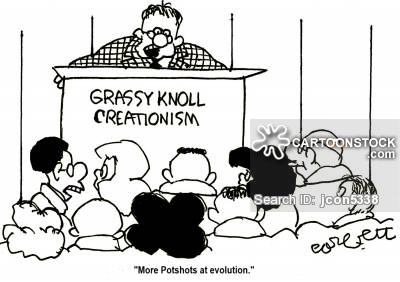
Just to be clear on a point. I think you will find that the modern day Seventh Day Adventist Church (and its members), tend to distance themselves, from the visions and prophesies of Ellen G. White.
Anyway, as an aside, the Protestant site Patheos, had some interesting articles today:
Last edited by Holy-Fool-P-Zombie on Thu Aug 25, 2016 4:08 pm, edited 1 time in total.
Anglo-Orthodox / Anglo-Catholic; Holy Fool Theologian; Satirist; Pragmatist; Homeopath; Inclusivist / Postmortem Opportunist / Conditionalist;
Contemplation (i.e. Mindfulness, Walking the Red Road, Yoga); Ayurveda; Chinese Medicine; Prosperity (AKA Joel Osteen) / Full Gospel
Contemplation (i.e. Mindfulness, Walking the Red Road, Yoga); Ayurveda; Chinese Medicine; Prosperity (AKA Joel Osteen) / Full Gospel
-

Holy-Fool-P-Zombie - Posts: 2037
- Joined: Mon Oct 20, 2014 6:30 pm
- Location: Near Chicago or hanging out with Holy Fools, P-Zombies, Guardian Angels and Devil's Advocates
Re: Wow, so what do you really believe? ...Statement of Fai
Holy-Fool-P-Zombie wrote:Just to be clear on a point. I think you will find that the modern day Seventh Day Adventist Church (and its members), tend to distance themselves, from the visions and prophesies of Ellen G. White.
While it is indeed true that many contemporary Seventh-Day Adventists distance themselves from Mrs. White's visions, George McCready Price (1870-1963) did not. Here is a major writing of Mrs. White's about the Flood:
http://www.whiteestate.org/books/pp/pp8.html
Bill Maher asked, "So how do you convince people of the truth?"
Father Reginald Foster answered, "You don't. Forget it. You just have to... You just have to live and die with their stupid ideas. I'm sorry. What are you going to do?"
Father Reginald Foster answered, "You don't. Forget it. You just have to... You just have to live and die with their stupid ideas. I'm sorry. What are you going to do?"
- Geoffrey
- Posts: 908
- Joined: Wed Sep 17, 2008 3:15 pm
Re: Wow, so what do you really believe? ...Statement of Fai
Geoffrey wrote:Holy-Fool-P-Zombie wrote:Just to be clear on a point. I think you will find that the modern day Seventh Day Adventist Church (and its members), tend to distance themselves, from the visions and prophesies of Ellen G. White.
While it is indeed true that many contemporary Seventh-Day Adventists distance themselves from Mrs. White's visions, George McCready Price (1870-1963) did not. Here is a major writing of Mrs. White's about the Flood:
http://www.whiteestate.org/books/pp/pp8.html

I'm not a big fan of Mrs. White. It's unfortunate that someone as late as 1963 - still paid her homage. If we look at Seventh Day Adventists, they used to be considered on the fringes by mainstream Protestant, Catholic and Eastern Orthodox groups. In fact, I have read that a member of the Eastern Orthodox Church, can't marry someone from the Seventh Day Adventist church - in the Seventh Day Adventist Church (is this correct, Geoffrey?). It's all to do the prophetic revelations of Ellen G. White. There's even a Wiki article entitled Criticism of Ellen G. White. What I found particularly interesting in the second article, is the mental illness section (which would also encompass organic illness). The modern Seventh Day Adventists have distanced themselves from her and are more accepted by mainstream Christian groups these days.
Suppose we were coming to join the Seventh Day Adventists. How would we determine if Ellen G. White was a real prophet? It's an interesting thing to ponder. I think you will find a real prophet, is always 100% right (can anyone name me a case, where a true Old or New Testament prophet - prophesied anything incorrectly?). Take my Protestant Christian mom - now deceased at 92.5 - having the lifelong gift of prophesy. She never "advertised", "charged money", nor "sold tickets", but she was always right. And she told me as a Boy Scout teenager, to take an umbrella to a parade. None of the weather TV or radio services forecast rain. And I got ribbed by fellow scouts. Until there was a downpour, in the middle of the parade. And I was the only one - with an umbrella.
P.S. Here's an interesting prayer article I found today.
Last edited by Holy-Fool-P-Zombie on Thu Aug 25, 2016 4:36 pm, edited 6 times in total.
Anglo-Orthodox / Anglo-Catholic; Holy Fool Theologian; Satirist; Pragmatist; Homeopath; Inclusivist / Postmortem Opportunist / Conditionalist;
Contemplation (i.e. Mindfulness, Walking the Red Road, Yoga); Ayurveda; Chinese Medicine; Prosperity (AKA Joel Osteen) / Full Gospel
Contemplation (i.e. Mindfulness, Walking the Red Road, Yoga); Ayurveda; Chinese Medicine; Prosperity (AKA Joel Osteen) / Full Gospel
-

Holy-Fool-P-Zombie - Posts: 2037
- Joined: Mon Oct 20, 2014 6:30 pm
- Location: Near Chicago or hanging out with Holy Fools, P-Zombies, Guardian Angels and Devil's Advocates
Re: Wow, so what do you really believe? ...Statement of Fai
Holy-Fool-P-Zombie wrote: I have read that a member of the Eastern Orthodox Church, can't marry someone from the Seventh Day Adventist church - in the Seventh Day Adventist Church (is this correct, Geoffrey?).
My understanding is as follows:
It is of course best for a member of the Orthodox Church to marry a fellow member of the Orthodox Church.
A member of the Orthodox Church is reluctantly allowed through economia (but certainly not encouraged) to marry a non-Orthodox Christian who A) has received trinitarian baptism, B) agrees to be married in the Orthodox Church, and C) agrees to have all their children baptized, chrismated, and raised in the Orthodox Church.
Obviously, probably only someone not too serious about his own denomination would agree to marry an Orthodox on those terms.
I think Seventh-Day Adventists receive trinitarian baptism, don't they? If so, an Orthodox could conceivably marry a Seventh-Day Adventist.
Bill Maher asked, "So how do you convince people of the truth?"
Father Reginald Foster answered, "You don't. Forget it. You just have to... You just have to live and die with their stupid ideas. I'm sorry. What are you going to do?"
Father Reginald Foster answered, "You don't. Forget it. You just have to... You just have to live and die with their stupid ideas. I'm sorry. What are you going to do?"
- Geoffrey
- Posts: 908
- Joined: Wed Sep 17, 2008 3:15 pm